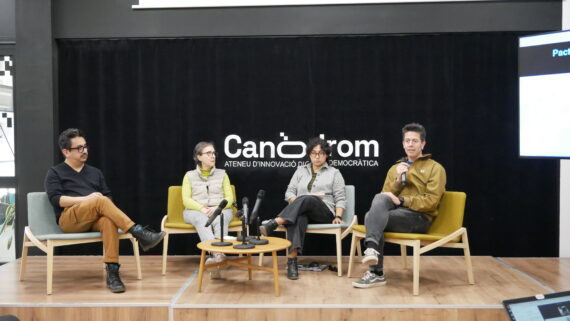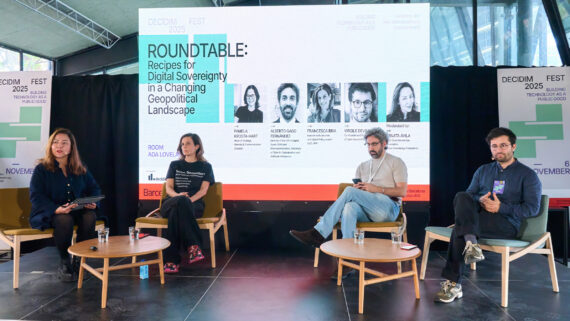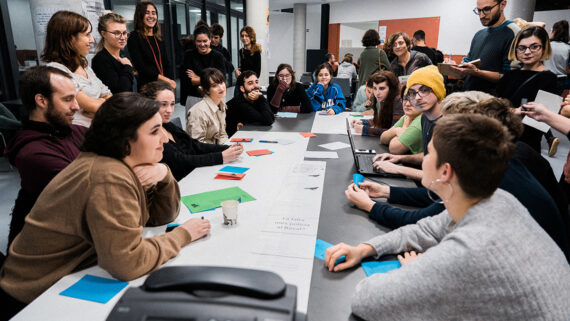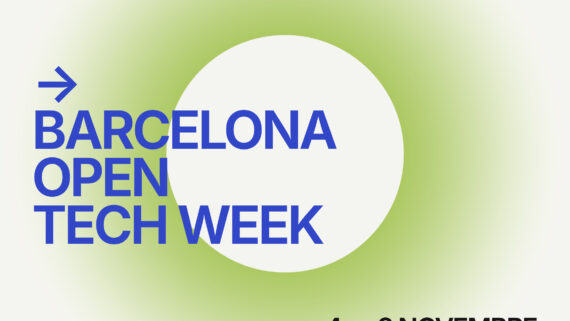Amb motiu de l’11 de febrer, Dia Internacional de les Dones i les Nenes a la Ciència, hem conversat amb Sofia Williamson, cofundadora i project manager a Lichen Innovación Social, una de les entitats col·laboradores del Canòdrom.
Through innovative and inclusive projects, Lichen addresses major social and environmental challenges, fostering co-responsibility and collective intelligence as key tools to generate positive impacts.
In this interview, Sofia talks to us about the importance of participatory research, a gateway for more and more young people to become change agents, researchers, and creators of solutions that contribute to a fairer and more sustainable future.
What does participatory research consist of?
Participatory research actively involves communities in issues that affect them, not only to collect data and expand the scope of a study but also to foster critical thinking, democratize knowledge, and raise awareness about the challenges we face, promoting responsibility, commitment, and collective action.
You participate in many social innovation and citizen science projects that strive for planetary health. Today we want to focus on CIRCULATE. What are the objectives of this initiative?
CIRCULATE seeks to shed light on a growing and little-explored issue: tire wear particles, as well as understanding the public’s exposure to these pollutants. In the project, young people from two schools in Barcelona actively participate in a scientific study using various measurement tools, such as environmental sensors, silicone wristbands, and urine samples to measure exposure to these particles. Afterwards, the students take part in the prototyping phase, co-creating outreach interventions to raise awareness about this environmental challenge.
How do you promote horizontal dialogue between academia and the public through this project? What role do young people play in Circulate?
Communication is essential to fostering horizontal dialogue. We want complex topics to connect with people in an understandable and accessible way, which is why we pay special attention to design, visual identity, and interactive dynamics during the sessions. In CIRCULATE, students were not only an active part of the scientific study but also designed and created prototypes that make the issue of particles and their environment more visible.
How do you foster a spirit of research among girls and teenagers?
We focus on making complex topics more attractive and understandable to spark their curiosity. Additionally, we seek to create inclusive participation spaces where young people can reflect, ask questions, and experiment in a practical way. For us, the value lies in the research process, rather than in the final results. Mistakes are a great learning opportunity and are a fundamental part of the scientific journey.







